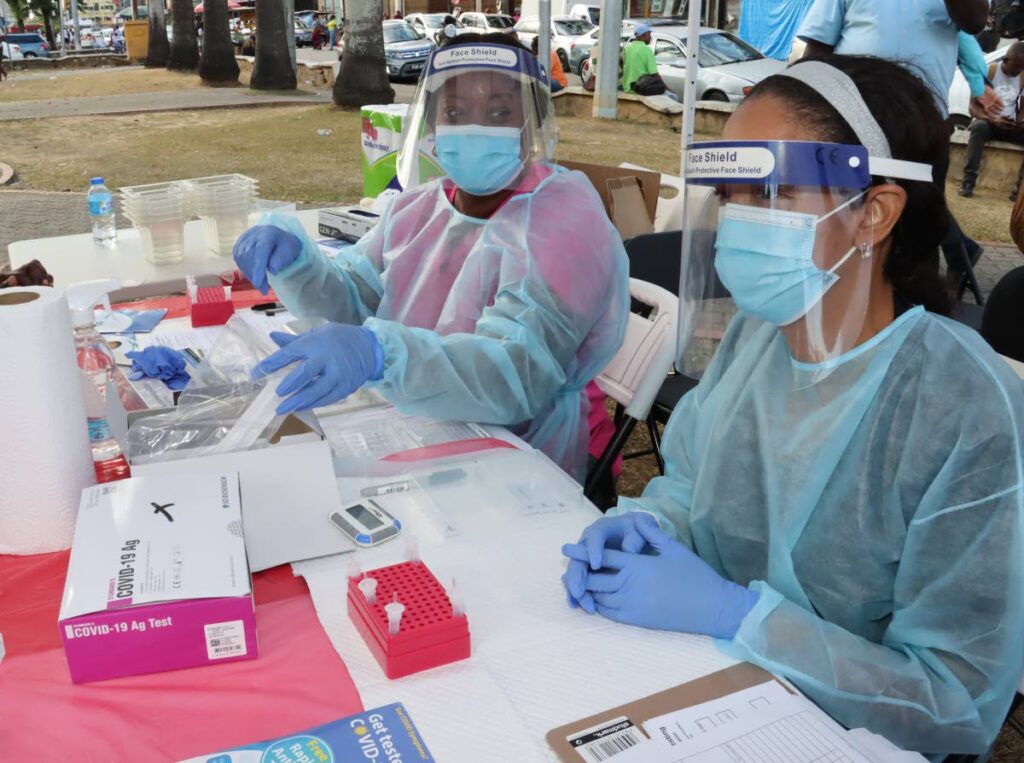Chronic long covid conditions can last for 3 months, says ex-UWI medical dean

Former dean of the Faculty of Medical Sciences at UWI Prof Emeritus Terence Seemungal says most people recover from long covid in three-six months – but there are a few for whom symptoms last longer.
The US Centers for Disease Control (CDC) defines long-term covid as a chronic condition that occurs after covid19 infection and lasts for at least three months.
Fatigue, brain fog and post-exertional malaise (PEM – a worsening of symptoms after minimal physical or mental activity) were the most common symptoms, but there were more than 200 long covid symptoms which could range from mild to severe and may be similar to symptoms of other illnesses.
In an interview with the World Health Organization, Dr Janet Diaz, a US critical care medicine specialist, said there was no specific treatment for long covid because doctors and scientists did not understand why it developed.
She encouraged patients to work with doctors and other health professionals to manage symptoms, which may include chest pain, trouble speaking, anxiety or depression, muscle aches, fever, loss of smell and loss of taste.
She said, “So, as we're learning more about the actual reason or mechanism of the disease developing, then we hope to have a specific treatment.”
Seemungal said people with covid19 should get better after two weeks. If not, they should see a doctor.
He described long covid as a period of fatigue for which there was no explanation other than that the person had a covid19 infection or the symptoms of covid19 persisted. He said it was very prevalent during the pandemic.
He said such fatigue was nothing new, because people often had that reaction after the flu and other viruses. But it was significant with covid19, as more people were affected than with other viruses.
“It just happens when people have not been careful in how they manage their recovery. They may have started activity too quickly or they may not have started activity at all. You have to balance very carefully how you do it.
“It was a bit more with the coronavirus. People have exaggerated immune responses to viruses all the time, but it’s very low, because our immune systems are primed.
"But here with covid, our immune system was not aware of this virus before.
“So in a small number of patients there was a huge exaggerated response. And since the virus affected a large proportion of the population, we got a large number of patients.”
He added that the fatigue could sometimes be the result of asthma or other airway conditions, or pulmonary fibrosis, which is scarring and thickening of the lung tissue.
Seemungal said long covid was a concern because people, especially the elderly, were dismissing it instead of treating it. He said people with a persistent cough or other symptoms blamed it on getting older and so tolerate it.
He said with younger people, the decline in their quality of life was obvious, but the elderly were already doing less. When the elderly had long covid, they did even less, their muscles got weaker, they took longer to recover and so would get more symptoms.
He said there was a stigma around covid19, where even now people would look askance at anyone who coughed.
“We tend to stigmatise certain diseases, even if they are curable, but sickness is part of living and we have to be able to cope with that.
“When the society stigmatises an illness, people on the margins of the illness, who have it a little more severely, have a worse time coping. We have to try to avoid that. We have to understand there is a need for support.”
Asked about the vaccines' effects on long covid, Seemungal said one of his patients had long covid, but when she took a covid19 vaccine she got well.
He said he and some of his internal and respiratory medicine colleagues observed similar responses in 25 per cent of their patients with long covid. The vaccine made no difference to about 50 per cent, and 25 per cent got worse after they took the vaccine.
“The thing is, we don’t know if they would have got better or worse anyhow. You can’t necessarily see a cause and effect.”
He said in theory, the vaccine helped the immune system cope with inflammation, so patients were less likely to go to the hospital or die from covid19 and have less risk of long covid.
“You might have specific instances where things are different, but generally speaking, this is what you will expect.”
Newsday e-mailed several questions to the Ministry of Health on December 6, asking if it was monitoring cases of long covid in TT and if there were any statistics. There was no response up to press time.

Comments
"Chronic long covid conditions can last for 3 months, says ex-UWI medical dean"